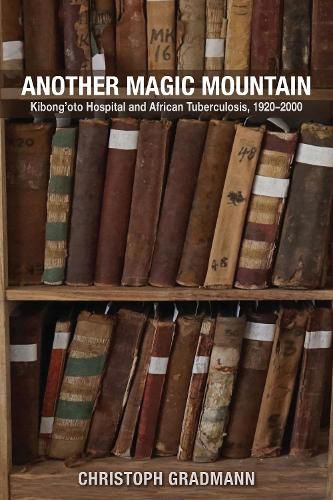Readings Newsletter
Become a Readings Member to make your shopping experience even easier.
Sign in or sign up for free!
You’re not far away from qualifying for FREE standard shipping within Australia
You’ve qualified for FREE standard shipping within Australia
The cart is loading…






Kibong'oto Hospital, opened in 1926, is an East African tuberculosis treatment center located on the slopes of Mount Kilimanjaro. Its history is crucial to understanding tuberculosis in Tanzania and, more broadly, in Africa. With the hospital as a point of departure, Christoph Gradmann presents a history of this disease that engages with local and regional contexts rather than with international elite science and health policies.
The book addresses key questions about the African experience with tuberculosis:
What did it mean to do clinical science on tuberculosis in colonial and postcolonial contexts? Along which trajectories did medical practice and research evolve in a place where international advances in medical science were sometimes heard of only faintly and where resources could be scarce? How did a large hospital with several hundred beds dedicated to the treatment of just one condition figure in the development of national and regional health systems? How did Kibong'oto Hospital, a pride of colonial health governance, transition after Tanzania gained independence? How did treating and researching tuberculosis change throughout the twentieth century in an African hospital dedicated to that condition? How did research at the hospital contribute to tuberculosis-control strategies on national and international levels?
The book is based on the hospital's unique archive: its surviving library of thousands of case summaries. Since 1926, this library has documented an enormous number of patient lives, staff careers, diagnoses, treatments, clinical trials, and much more. For today's readers, the library provides insight into a history of clinical medicine in Africa, for which very few comparable archives exist.
Gradmann supplements this site-specific research with material from national and international archives, as well as interviews with former staff involved in that history. The book's four chapters offer perspectives on colonial epidemiological research in the interwar years; on late colonial healthcare development plans and the arrival of modern drug therapies; on the role of a national tuberculosis hospital in a newly independent country; and on the history of tuberculosis control in an age of economic crisis, HIV, and emergent global health-treatment programs. Finally, Gradmann discusses what the history of a large hospital can add to today's tuberculosis research, control policy, and historiography.
$9.00 standard shipping within Australia
FREE standard shipping within Australia for orders over $100.00
Express & International shipping calculated at checkout
Kibong'oto Hospital, opened in 1926, is an East African tuberculosis treatment center located on the slopes of Mount Kilimanjaro. Its history is crucial to understanding tuberculosis in Tanzania and, more broadly, in Africa. With the hospital as a point of departure, Christoph Gradmann presents a history of this disease that engages with local and regional contexts rather than with international elite science and health policies.
The book addresses key questions about the African experience with tuberculosis:
What did it mean to do clinical science on tuberculosis in colonial and postcolonial contexts? Along which trajectories did medical practice and research evolve in a place where international advances in medical science were sometimes heard of only faintly and where resources could be scarce? How did a large hospital with several hundred beds dedicated to the treatment of just one condition figure in the development of national and regional health systems? How did Kibong'oto Hospital, a pride of colonial health governance, transition after Tanzania gained independence? How did treating and researching tuberculosis change throughout the twentieth century in an African hospital dedicated to that condition? How did research at the hospital contribute to tuberculosis-control strategies on national and international levels?
The book is based on the hospital's unique archive: its surviving library of thousands of case summaries. Since 1926, this library has documented an enormous number of patient lives, staff careers, diagnoses, treatments, clinical trials, and much more. For today's readers, the library provides insight into a history of clinical medicine in Africa, for which very few comparable archives exist.
Gradmann supplements this site-specific research with material from national and international archives, as well as interviews with former staff involved in that history. The book's four chapters offer perspectives on colonial epidemiological research in the interwar years; on late colonial healthcare development plans and the arrival of modern drug therapies; on the role of a national tuberculosis hospital in a newly independent country; and on the history of tuberculosis control in an age of economic crisis, HIV, and emergent global health-treatment programs. Finally, Gradmann discusses what the history of a large hospital can add to today's tuberculosis research, control policy, and historiography.